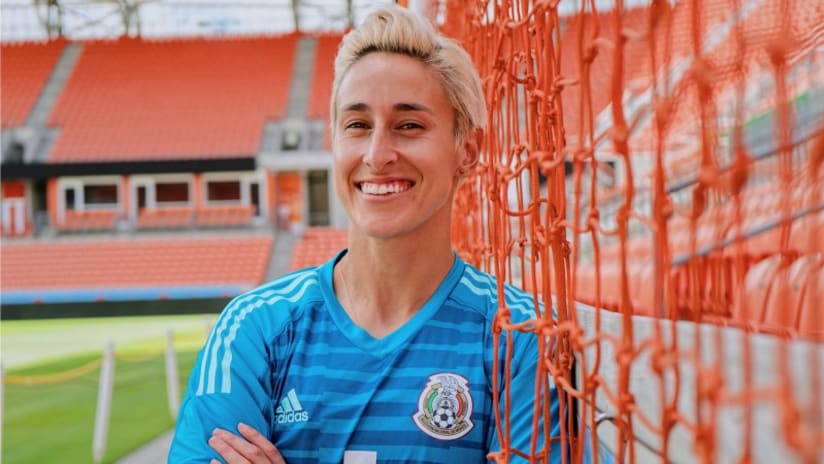For many athletes, the opportunity to play at the national level is an honor unlike any other. For Dash goalkeeper Bianca Henninger, a spot on the Mexican Women’s National Team has added meaning as it has allowed her to connect more with her Mexican roots. Ahead of Hispanic Heritage Month, we caught up with the goalkeeper to ask her about her experience playing for the senior team and her experiences as a Mexican-American athlete.
Since earning her first cap with the senior team in February 2017, Henninger has earned 5 caps for Mexico, which include a clean sheet in the second half of the 2018 Central American and Caribbean Games final this July, leading to a gold medal in the tournament. Most recently, she has been named to the team’s provisional roster for this year’s CONCACAF Women’s Championship. When asked what it means to be able to represent El Tri, Henninger lists it as one of the highlights of her career, saying, “being Mexican is such a huge part of who I am, and to be able to fulfill the dream of representing Mexico makes me want to pinch myself every time I think about it.”
Not only does playing for the national team fill the goalkeeper with a sense of patriotism, it has also afforded her the opportunity to better connect with her heritage. To her disappointment, Henninger does not get to visit Mexico as often as she would like and traveling with the team gives her that opportunity. “Although we don’t spend time necessarily exploring the country when we’re there to play, I think it’s so important to travel places in order to get the full experience. For me, it’s important because I get to see the world that shaped my family, which of course made me who I am.”
A native of California, Henninger, whose mother was born in Mexico, finds herself in a similar situation to many others – between two cultures – equally American and Mexican. Though the waters between two cultures are sometimes difficult to navigate, Henninger revels in the benefits of being Mexican-American, stating, “I get the best of both worlds. As an American you’re instilled with this ‘never say die’ attitude from an early age and of course that shaped who I am in a big way. As a Mexican, you get a passion for life. You learn that nothing is going to be handed to you and it’s going to be tough, but there’s no one who can handle it better than you.”
Henninger’s outlook on life has not only been shaped by her family and her heritage, but by other prominent Mexican figures. Like many other Mexican-Americans, especially Texans, Henninger grew up in a household where Tejano artist Selena Quintanilla was a household name and whose story reflected that of her own family. “With my grandparents being in a similar situation in terms of trying to make it in America and seeing the struggle they went through to do so, Selena has always been a figure that really resonated with me.” An adopted Houstonian, Henninger also draws inspiration from NASA astronaut Dr. Ellen Ochoa, who was the first Hispanic director of Johnson Space Center. “I think it’s awesome when people can break down barriers and be ‘firsts.’ It can be so scary when no one else has done what you’re about to do, so that’s something that I really admire about her.”





